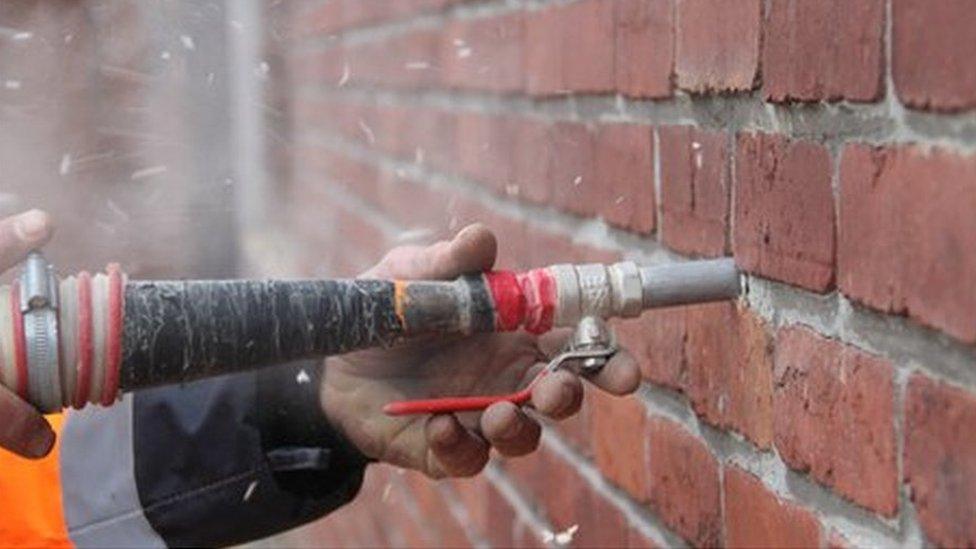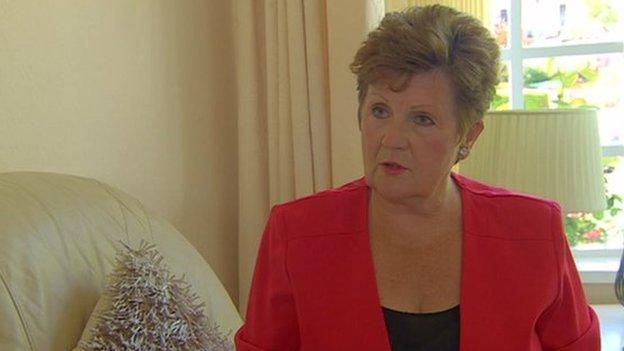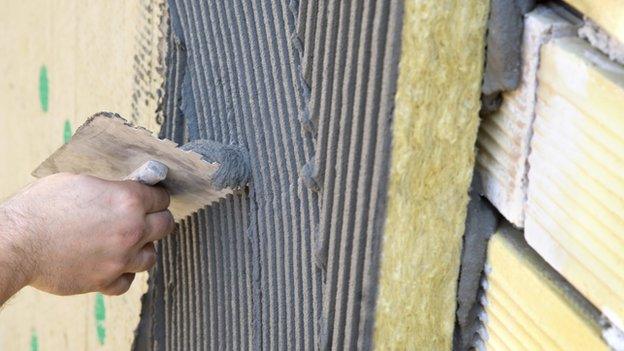Call for Wales-wide cavity wall survey
- Published

Experts asked to examine issues with cavity wall insulation in Wales say there needs to be a nationwide survey of the problem.
Hundreds of homes in Welsh local authorities have had the insulation removed due to damp and condensation.
A report, external for a body advising the Welsh Government has recommended a wider investigation into the issue.
Construction Excellence in Wales (CEW) also wants better risk assessments on suitability for cavity insulation.
"There is evidence that that cavity wall insulation or external wall insulation has been installed in unsuitable properties, or without due regard for best practice," stated the authors of the report for CEW.
As many as 900,000 homes in Wales are built with cavity walls, according to the investigation. It was carried out by the construction research organisation BRE.
BRE said a survey in 2008 revealed that at least half those homes had the cavity gap filled with insulating material.
"The proportion of dwellings with insulated walls is likely to have risen considerably since this time," added the experts.
The report makes three main recommendations:
Undertake a larger and nationally representative survey "to identify the extent of the issues"
An assessment of the competent person's scheme, to develop guidance on surveying and insulation installation
Develop a maintenance guide for installers, housing managers and occupants

Cavity Insulation Victims Alliance founder Pauline Saunders
Pauline Saunders from Newport set-up the campaign group Cavity Insulation Victims Alliance and said she is not surprised by the report findings.
She said she has been contacted by around a thousand people and helped hundreds get funding to remove damaging insulation.
"It's confirming what we've known all along - that the cavity wall insulation industry is rubbish and it's ruined people's lives," she said.
"I've a file of cases about 12 inches deep. Wales has some of the worst cases. There needs to be an in-depth report because no-one has any figures."
The report for CEW has backed that argument, noting that its current findings are based on a small number of self-selected properties that had problems with damp.
- Published28 August 2015
